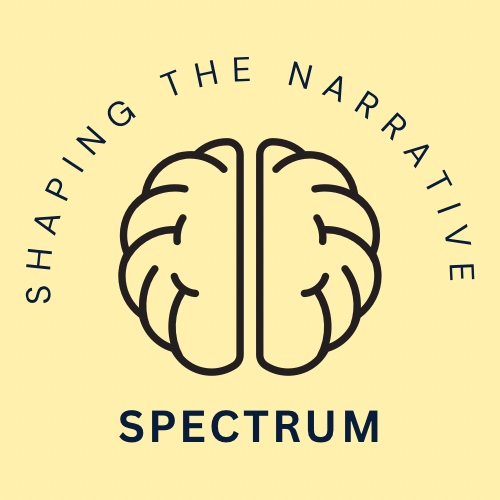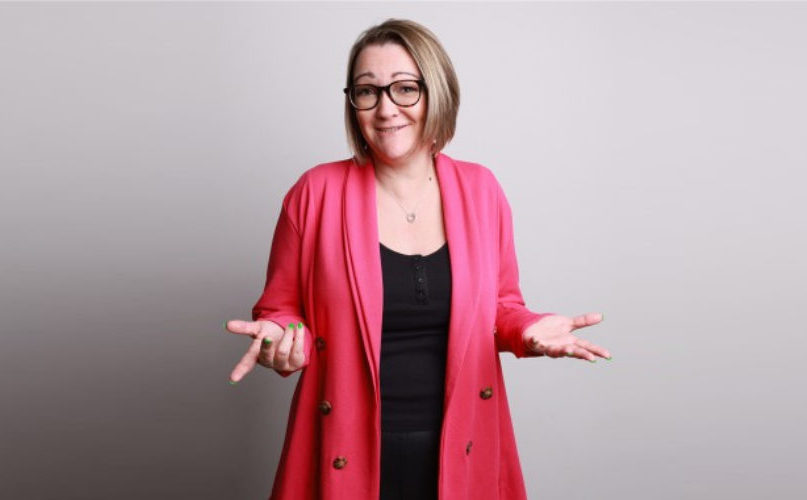For years, women with Autistic Spectrum Disorder (ASD) have been significantly underdiagnosed, navigating through life facing a hidden struggle.
Countless women live without knowing the true cause of their challenges; only one in three women currently receive an ASD diagnosis compared to one in every two men.
Infographic by Darcy Nathan at Spectrum
The list of symptoms for those on the autism spectrum was originally developed from studies of male patients, which explains the diagnostic gap between men and women. Male participants are still significantly overrepresented in many current studies, illustrating the persistance of this prejudice.
The challenges women encounter while seeking a diagnosis often start with the initial resistance from healthcare professionals and the need to justify their concerns repeatedly.
Toni Horn is a neurodiversity consultant, coach and winner of the inclusive leader award: “Seeking diagnosis, firstly, is about being taken seriously… You’re presented with a challenge of several questions when going to the doctor to say, ‘I think this represents me.’
“I think there’s a bit of pushback to begin with because there’s not so much awareness of it.”

Delayed diagnosis of autism in women has profound consequences. Autistic women face higher rates of anxiety and depression compared to non-autistic women. They also exhibit more mental health conditions than autistic men, with shockingly higher suicide rates.
“Misdiagnosis is huge, because if you’re misdiagnosed with anxiety and depression, healthcare support generally takes you down a medication route and it’s medication that you are not supposed to be having – it’s not depression and anxiety that’s causing some of the reactions that you have to certain situations – that can lead to anger” says Toni Horn.
Varsha Toshniwal is a medical writer for Bham Pharma with a long history of research on female ASD: “if there is a late diagnosis, the care that women are receiving is late and it could result in significant mental health problems.”
“It has also been found in research that females on the spectrum are more likely to be sexually abused if they are not receiving proper care as their condition has been diagnosed late”.

Disturbing evidence highlights this distressing reality: nine out of ten autistic women have experienced sexual violence. This alarming statistic sheds light on the vulnerability and heightened risk of harm that autistic women face in society.
Cultural factors can also contribute to the inequality in neurodiversity diagnosis and care for women. Stereotypes that associate autism primarily with males can lead parents and caregivers to overlook potential neurodiversity symptoms in their daughters.
These stereotypes can make it difficult for parents and caregivers to recognise the signs of autism in girls, who may not exhibit the same behaviours as boys with autism. As a result, women may be less likely to be diagnosed.
“If you have a parent who is neurodivergent, who’s never been diagnosed, they will instantly say that there’s nothing for you to worry about, because what they see is the norm to them is the norm to you” reports Toni Hayes.
Girls with ASD are more likely to mask their symptoms than boys, which can delay or prevent diagnosis. This means that they may be able to “pass” as neurotypical, which can delay or prevent diagnosis. Masking can be stressful and anxiety-inducing, as girls may feel like they are constantly having to pretend to be someone they are not.
Varsha Toshniwal emphasises: “How the symptomatology is presenting itself in females needs to be studied. So if more research is put into this area, we would definitely have better understanding that how autism is affecting women”.
The medical landscape needs to be more inclusive of women with neurodiversity. This means actively involving these individuals in research and policy-making, and improving the diagnostic process for women with neurodiversity.
Additionally, the role of advocacy cannot be underestimated. Advocacy groups like the Autistic Women & Nonbinary Network and the National Autistic Society are working to raise awareness and create policy to promote equitable access to support and resources for all individuals, regardless of gender.
Addressing the delayed diagnosis of women with autism requires a collective effort from society, healthcare systems, and individuals alike.
By recognising and embracing the unique experiences of neurodivergent women, we can pave the way for a more inclusive and supportive world, where all individuals have the opportunity to reach their full potential.
This website is part of a student project. While the information on this website has been verified to the best of our abilities, we cannot guarantee that there are no mistakes or errors.
The material on this site is given for general information only and does not constitute professional advice.
The views expressed through this site are those of the individual contributors and not those of the website owner. We are not responsible for the content of external sites.


Leave a Reply